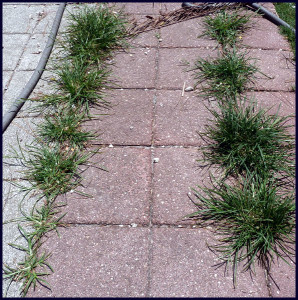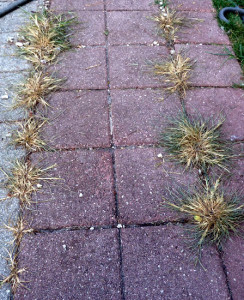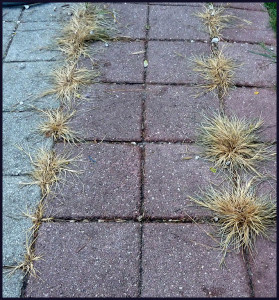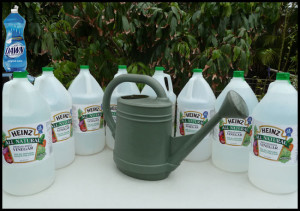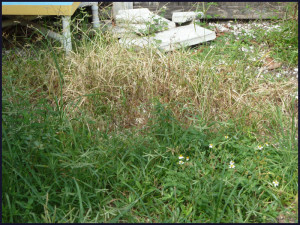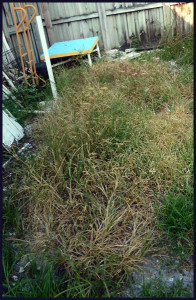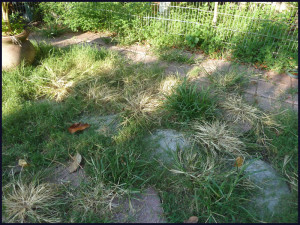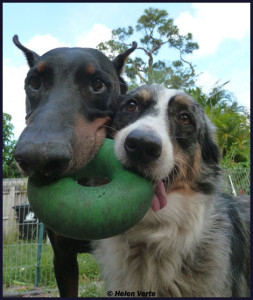It’s that time of year when weeds become a problem and we have to deal with them.
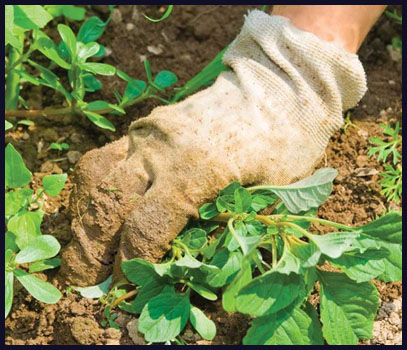 When I was growing up, people used to take out a knee pad, a bucket, some elbow grease and move around the yard manually pulling weeds. The job was never ending. And exhausting.
When I was growing up, people used to take out a knee pad, a bucket, some elbow grease and move around the yard manually pulling weeds. The job was never ending. And exhausting.
Now there are chemical sprays that aren’t environmentally friendly, and though the label states safe when dry, I wonder how safe.
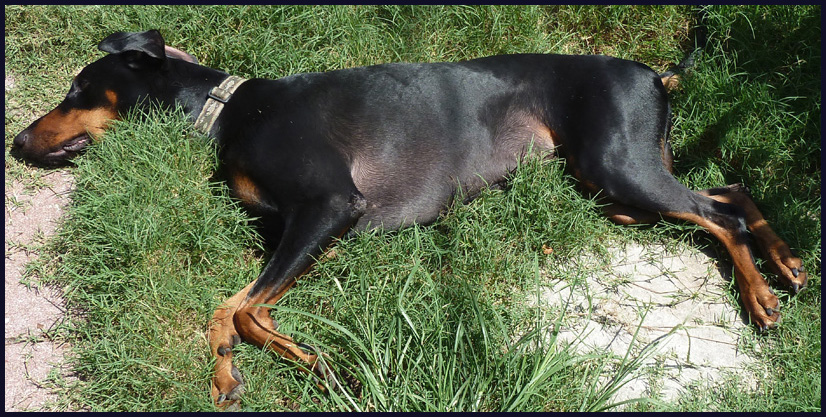 We have very little room for grassy areas in our back yard, and most of the areas have such a layer of rocks underneath, that only weeds can penetrate. So my dogs use whatever greenery is available during sunbathing time, and I don’t want the residual weed killer on their coats. Moreso, I don’t want that in their mouths either as my dogs have a fair amount of interest in eating grasses.
We have very little room for grassy areas in our back yard, and most of the areas have such a layer of rocks underneath, that only weeds can penetrate. So my dogs use whatever greenery is available during sunbathing time, and I don’t want the residual weed killer on their coats. Moreso, I don’t want that in their mouths either as my dogs have a fair amount of interest in eating grasses.
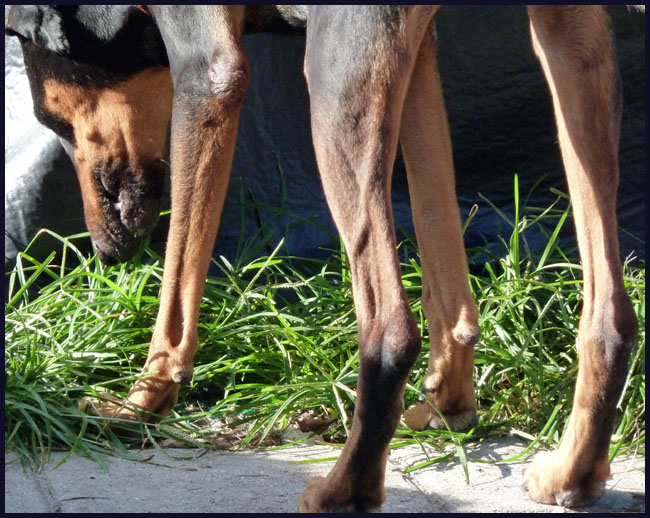 I recently sprayed some Round Up in my yard, in a no-dog area, and the smell was putrid. It was a dose of chemical covered by a cinnamon scent. The smell was so strong that I had to shut the windows and within a few hours, I went outside, and the smell still hung in the air. I took the hose and watered down the areas I had sprayed. I did that five times! The smell still lingered and took two days before it dissipated. I used the pre-mixed bottle of Round Up according to the directions. What an unbearable toxic odor!
I recently sprayed some Round Up in my yard, in a no-dog area, and the smell was putrid. It was a dose of chemical covered by a cinnamon scent. The smell was so strong that I had to shut the windows and within a few hours, I went outside, and the smell still hung in the air. I took the hose and watered down the areas I had sprayed. I did that five times! The smell still lingered and took two days before it dissipated. I used the pre-mixed bottle of Round Up according to the directions. What an unbearable toxic odor!
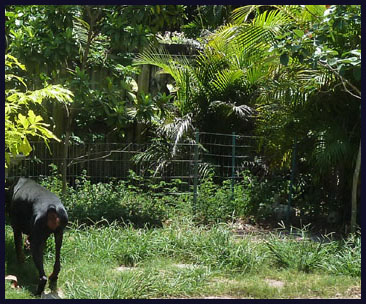 After that, I started looking for an alternative for the weeds in the dogs’ area. It was my intention, anyway. One of my dogs was diagnosed with hemangiosarcoma at the end of last year. I wonder about the weed killer chemicals I’ve used year after year and what role, if any, they play in disease. I don’t know, but after the nauseous fragrance of Round Up, I vowed not to resort to using the chemicals again to kill weeds, and as the weeds grew high and spread around us, I wondered what to use.
After that, I started looking for an alternative for the weeds in the dogs’ area. It was my intention, anyway. One of my dogs was diagnosed with hemangiosarcoma at the end of last year. I wonder about the weed killer chemicals I’ve used year after year and what role, if any, they play in disease. I don’t know, but after the nauseous fragrance of Round Up, I vowed not to resort to using the chemicals again to kill weeds, and as the weeds grew high and spread around us, I wondered what to use.
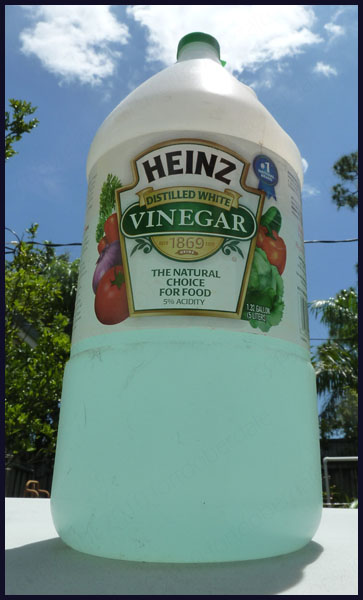 Through my research, I found that vinegar was supposedly effective. I’d also read that adding some dishwashing soap to the vinegar could help coat the weeds and aid in their demise.
Through my research, I found that vinegar was supposedly effective. I’d also read that adding some dishwashing soap to the vinegar could help coat the weeds and aid in their demise.
So I mixed in some Dawn with the remainder of a gallon jug of vinegar I had and went out to experiment on a row of weeds that were growing out of the pavers in the back yard. The solution could be poured into a squirt bottle and applied that way, but I chose to pour the mixture on the weed directly from the bottle. I saturated the weed and also aimed for the roots.
This was the before and after.
It takes a couple days, but the weeds die. Be sure, though, that you apply the vinegar on a dry day, and preferably one that’s hot. I used a sprinkle can the second time, and I bought 8 gallons of vinegar, which was still cheaper than Round Up.
And if you’re wondering about overgrown weeds and weeds in dirt, vinegar and Dawn worked on ending their takeover, too.
Why does this work? Vinegar is mainly acetic acid and water. So be careful where you pour it. If you miss the mark, whatever it hits will brown in no time. If you do make a mistake, try hosing down the greenery immediately. That may save it.
The bottom line is that the peace of mind I had knowing my dogs were safe from whatever unknown effects lurk in the bottles of chemcial weed killer was most of all comforting. Even their toys go into their mouths after rolling around in the back yard. It’s something to think about when choosing the way we kill weeds.
